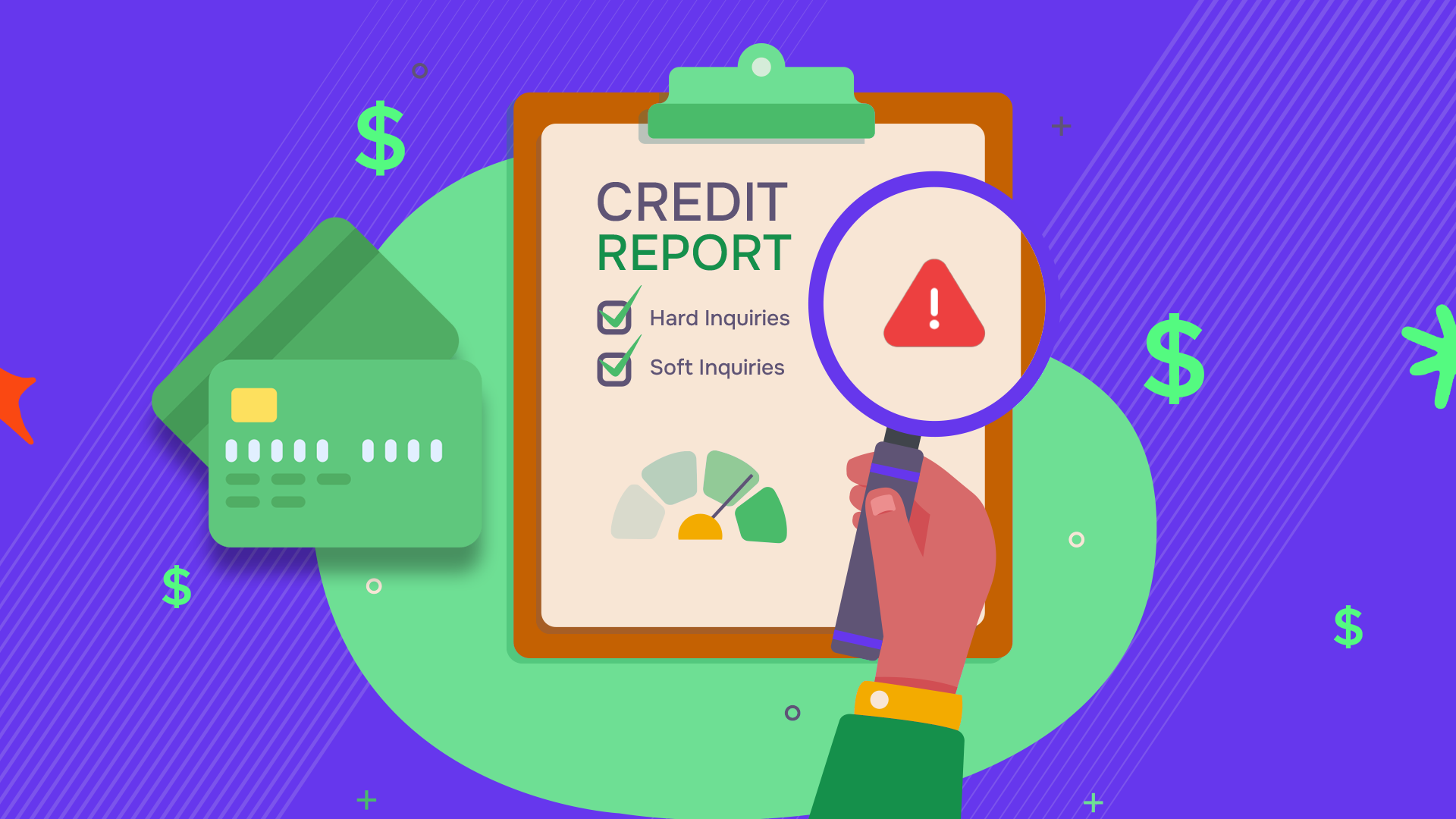Does Checking Your Credit Score Hurt You? The Truth About Inquiries
Most people get this wrong—see how checking your credit really affects your score, and what lenders actually look at.

No, checking your own credit does not hurt your score. However, certain types of inquiries can have a negative impact. Hard inquiries, which occur when lenders assess your credit for loans or credit applications, can temporarily lower your credit score. In contrast, soft inquiries—such as checking your own credit report or pre-approved loan offers—do not affect your credit score.
Understanding the difference between these inquiries is crucial for managing your credit health. Many people worry that simply reviewing their credit reports will hurt their scores, but that’s a myth. This guide explains how credit inquiries work, what triggers them, and how to avoid unnecessary score drops while maintaining a strong credit profile.
If you’ve been hesitant to check your credit due to fear of lowering your score, keep reading. We’ll clear up misconceptions, discuss when inquiries matter, and share strategies for responsible credit management.
What Is a Credit Inquiry?
A credit inquiry occurs when someone checks your credit report. It provides details about your credit history, including payment history, outstanding debts, and credit utilization. Inquiries can be classified into two main types:
- Hard Inquiries (Hard Pulls): These affect your credit score and typically happen when you apply for new credit.
- Soft Inquiries (Soft Pulls): These do not impact your score and occur when you check your own credit or when a company performs a background check.
Why Do Credit Inquiries Matter?
Lenders and creditors use credit inquiries to assess your financial responsibility. While a single inquiry won’t drastically change your score, multiple hard inquiries in a short time can signal financial distress, making lenders hesitant to approve new credit.
What Are Hard Inquiries?
A hard inquiry (also called a "hard pull") happens when a lender or financial institution reviews your credit report to decide whether to approve your application for credit.
When Do Hard Inquiries Occur?
Hard inquiries are triggered when you:
- Apply for a credit card
- Apply for a personal loan
- Take out a mortgage or auto loan
- Request a credit limit increase
- Apply for some rental agreements
How Hard Inquiries Affect Your Credit Score
- A single hard inquiry can lower your credit score by 2 to 5 points.
- Multiple hard inquiries in a short period can further reduce your score.
- They remain on your credit report for two years, but their impact lessens over time.
How to Avoid Unnecessary Hard Inquiries
- Shop for loans within a short window (14-45 days) – Credit scoring models treat multiple inquiries for the same type of loan within a short period as one inquiry.
- Only apply for credit when necessary – Avoid unnecessary applications that trigger hard inquiries.
- Check if you’re pre-approved – Some lenders allow pre-qualification, which involves a soft inquiry instead of a hard one.
What Are Soft Inquiries?
A soft inquiry (or "soft pull") occurs when your credit report is checked for non-lending purposes.
When Do Soft Inquiries Occur?
Soft inquiries are triggered when:
- You check your own credit score
- A lender performs a pre-approval check
- An employer conducts a background check
- A landlord verifies your financial history
- A credit card company sends you a promotional offer
How Soft Inquiries Affect Your Credit Score
- No impact on your credit score
- Can be performed without your permission (e.g., promotional credit offers)
- Appear on your credit report but are visible only to you
Why Checking Your Own Credit Is Important

Many people avoid checking their credit score because they believe it will hurt their score, but that’s a myth. Regularly monitoring your credit helps you:
- Detect fraudulent activity early
- Ensure your credit report is accurate
- Identify areas where you can improve your credit score
How Many Hard Inquiries Are Too Many?
Having multiple hard inquiries in a short time can raise red flags for lenders. Here’s how different levels of inquiries may affect your creditworthiness:
How to Minimize Hard Inquiry Impact
- Space out applications at least six months apart.
- Apply for only one or two credit accounts per year.
- Focus on improving existing credit accounts instead of constantly seeking new ones.
How to Remove Hard Inquiries from Your Credit Report
Here are two(2) ways to remove inquiries from your credit report.
Legitimate vs. Unauthorized Inquiries
- Legitimate inquiries – If you applied for credit, these cannot be removed.
- Unauthorized inquiries – If a hard inquiry was made without your permission, you can dispute it.
Steps to Dispute Unauthorized Hard Inquiries
- Obtain Your Credit Report – Get a copy from Experian, Equifax, or TransUnion.
- Identify Unauthorized Inquiries – Check for any inquiries you don’t recognize.
- File a Dispute – Contact the credit bureau or credit repair services like Credit Veto and lender to request removal.
- Follow Up – Monitor your credit report to ensure the inquiry is removed.
Hard vs. Soft Inquiries: Key Differences
How Credit Veto Helps You Manage Your Credit Health
Navigating credit inquiries can be challenging, but you don’t have to do it alone. At Credit Veto, we provide expert guidance to help you:
- Understand your credit report and how inquiries affect your score.
- Avoid unnecessary hard inquiries that lower your score.
- Improve your credit score with personalized credit strategies.
- Dispute unauthorized inquiries that negatively impact your credit.
Don’t let unnecessary hard inquiries damage your credit. Sign up with Credit Veto today and take control of your financial future.
Key Takeaways
- Checking your credit does not always hurt your score.
- Hard inquiries (from lenders) can temporarily lower your score, while soft inquiries do not.
- Applying for multiple loans in a short period can lower your score.
- You can dispute unauthorized inquiries to protect your credit.
- Monitoring your credit regularly is essential for financial health.
FAQ
1. How long do hard inquiries affect my credit score?
Hard inquiries stay on your credit report for two years but usually only affect your score for 12 months.
2. Can I remove hard inquiries from my credit report?
If the inquiry is legitimate, you cannot remove it. However, unauthorized inquiries can be disputed with the credit bureau.
3. How often should I check my credit score?
It’s recommended to check your credit score at least once a month using a soft inquiry.
4. Will getting a pre-approved credit offer hurt my score?
No, pre-approvals are soft inquiries and do not affect your score.
5. What should I do if I have too many hard inquiries?
Focus on improving your credit score by making timely payments, reducing credit utilization, and avoiding unnecessary applications.
Now that you know the difference between soft and hard inquiries, take action and get in control of your credit score. Join the 5x5 Credit Veto Challenge today and start making smarter credit decisions!




Comments ()